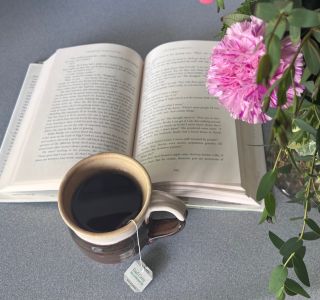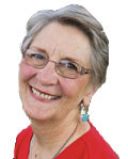Friends
Can I Be Friends With People Who Don’t Read Books?
Of course, but reading can make a good relationship better.
Posted May 17, 2023 Reviewed by Davia Sills
Key points
- Some people surround themselves with other book readers.
- Book readers tend to ask more questions, which can make them better conversationalists.
- Reading is connected to empathy and emotional intelligence, essential elements of friendship.

I’m not a fan of memes—they try to package complicated issues into clever and easily accessible boxes. As such, they can encourage lazy thinking and divisiveness. But one caught my eye recently: I don’t think I could be friends with anybody who doesn’t read books. Simplistic, yes. But with the kernel of a thought that keeps returning. I surround myself with other readers. Why? Does reading encourage deeper relationships between book lovers?
I don’t always discuss books when I meet with my closest friends, but I do find those discussions most fulfilling. They’re deeper and more varied than those focused on other topics popular with my set—politics, current events, grandkids, funerals, gossip. Meh.
Who Doesn’t Read Books?
Twenty-six percent of all Americans report not having read a book in the past year, according to the Pew Research Center. Non-book-readers tend to be older, have incomes under $30,000, or have only a high school education.
But even book readers are reading less, especially college graduates and older Americans. According to Gallup, college graduates read an average of 21 books in 2016; that dropped to 16 in 2021. Americans 55 and older went from an average of 17 books read a year to 12 in the same period. Women still read more than men, but the gap is narrowing, with women reading slightly less than they had.
Why are people reading fewer books? Did COVID ruin our concentration? Were we cooped up so long that we now just want to be out of the house rather than in the chair with our noses in a book? Does working at home interfere with reading?
Or do politics play a role? I’ve noticed significant changes in media usage among my friends from 2016 to now. Some have stopped watching broadcast news to reduce stress and have retreated to the relative comfort of books. Some have taken the opposite approach and have become political junkies, glued to their favorite cable news shows, afraid to miss the latest chaos. Both groups and all the permutations in between are about reducing stress by controlling what information gets into their heads and how.
Reading Books May Increase Longevity
Reading, while a sedentary activity, is connected to mental and physical health. In fact, book readers might actually live longer than non-readers, according to a study at the University of Toronto. Why? Books encourage immersive reading and cognition that helps them see the connections between things so they understand our world, its history, its people, and our place in it. This improves decision-making and helps manage expectations. Book readers also tend to ask more questions, developing critical thinking skills, empathy, and emotional intelligence that translates to life skills, including the ability to build and sustain relationships.
I prefer reading my news, which I generally do in the morning, from a variety of newspapers. I listen to NPR and check social media during the day, usually, my carefully curated Facebook page, which shows me all the cool photos my fellow grandmothers have taken of fields, clouds, and flowers, but also alerts me to news from the reliable outlets I follow. But most of my mental energy goes into fiction and non-fiction books. And my mental energy comes from those books. It’s a solid, reciprocal relationship.
For some, book reading may be a luxury, tucked in between jobs, if at all. And I know many smart, well-educated, and engaged people who, for whatever reason, seldom pick up a book. Plus, there are people I would rather avoid who are avid readers. So book reading does not translate into wonderfulness. For me, it enhances an already solid relationship.
The deep conversations I have, those that go beneath the surface to real meaning and understanding, those are the conversations I have with book readers. Of course, I can be friends with non-readers—I am—but those friendships would be richer if there were a book or two between us.


